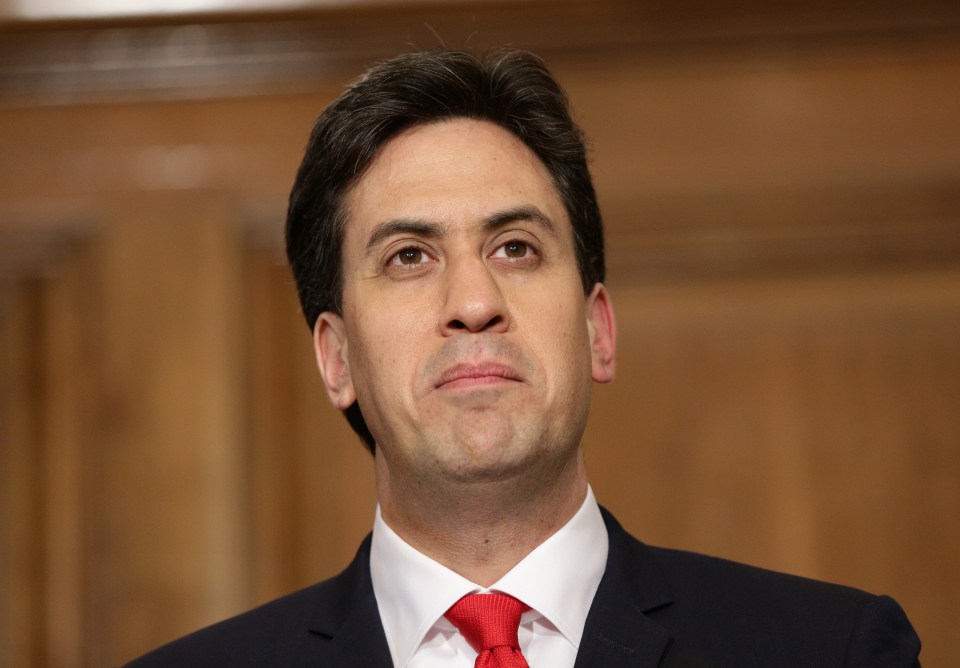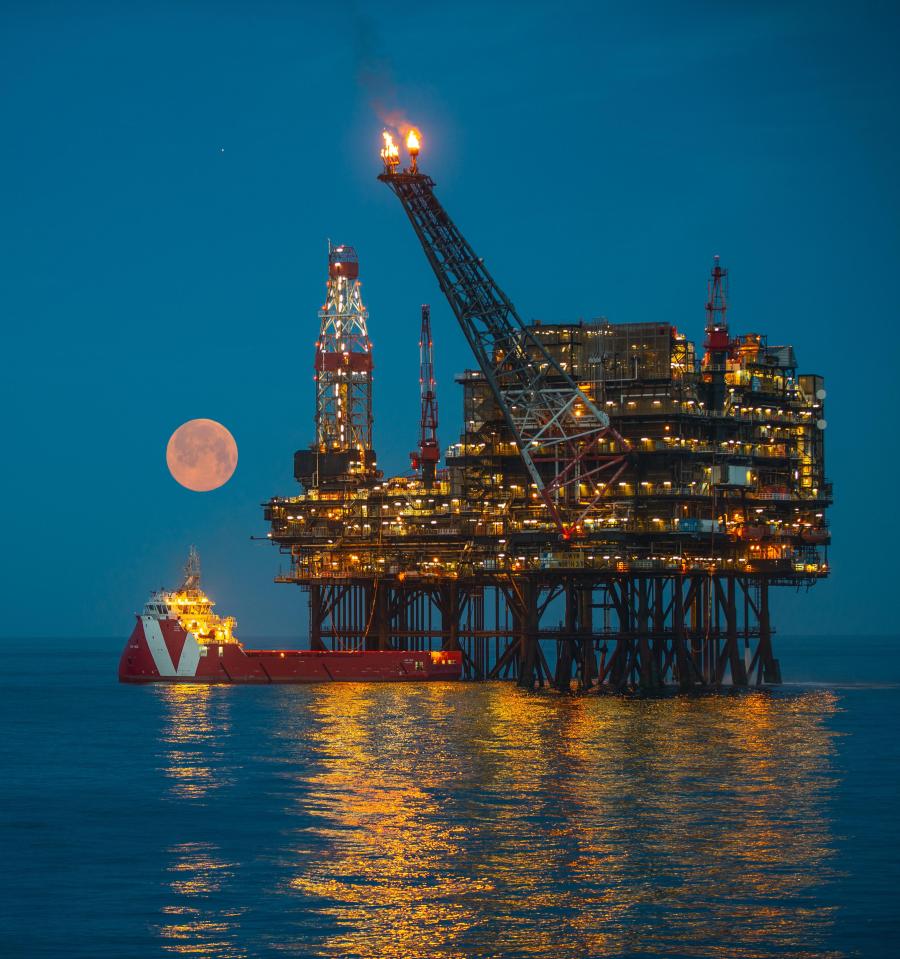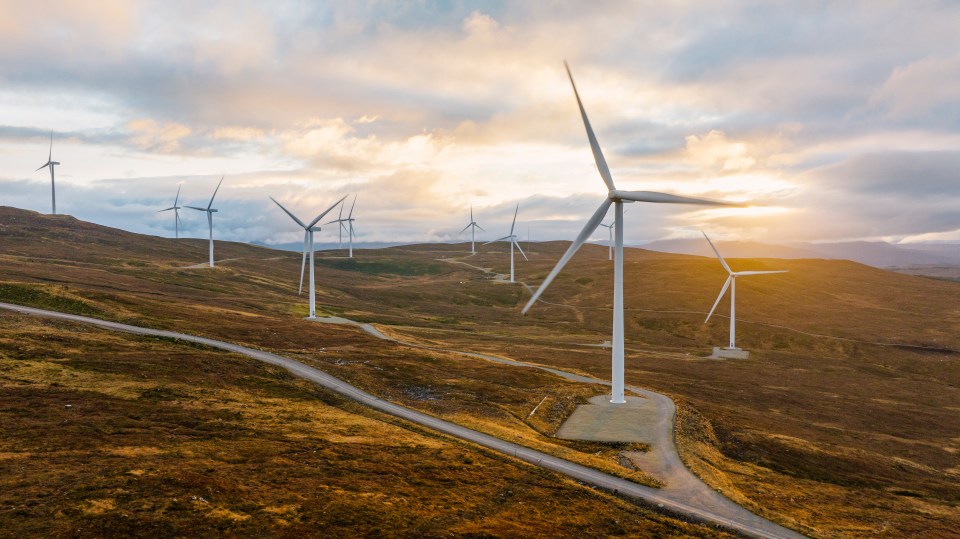I CAN only imagine that Ed Miliband has been locked in a cupboard for the past four days, lest he spoil Sir Keir Starmer’s somewhat forced friendship with Donald Trump.
How else to explain his remarkable silence in the face of the US President trashing Britain’s energy policy on his golfing trip to Turnberry?
Trump made several statements which would normally be a red rag to Miliband.
He called wind energy a “con job” and complained that turbines are spoiling the view from his golf course.
The following day he doubled down by attacking the Government’s policy of denying licences for new gas and oil extraction.
Reversing the policy, he asserted on his Truth Social account, would mean “a vast fortune to be made for the UK” and would lower bills for UK energy consumers.
But where was Ed to tell us that wind and solar energy is going to help save us £300 a year on our bills?
Low wind speeds
Nor did Starmer enter the fray. He sat next to Trump expressionless as the President tore into UK policy on Net Zero and other policies, too.
It is too much to hope Starmer and Miliband might have come round to thinking Trump may actually have a point?
Trump might not always be the best-informed person on UK politics but on this he is absolutely right.
The Scottish government has compromised one of its greatest assets — its landscape — by embracing wind power so enthusiastically, onshore and offshore.
But it is simply not providing us with affordable, reliable energy.
Subsidised investment in wind turbines has run well ahead of what the national grid can cope with.
Last year, UK energy consumers were forced to cough up £1.5BILLION in “constraint payments” to compensate wind farm owners when they have to turn off their turbines when they are generating too much power to be fed into the grid.
At other times — often in winter when the demand for power is greatest — the output from wind turbines falls to less than one per cent of UK energy demand.
Three years ago, Miliband and others started trying to tell us that wind energy was “nine times cheaper than electricity generated by gas”.
It wasn’t true then.
The comparison was arrived at by comparing the long-term, guaranteed prices offered to wind farms with the rates which have to be paid to the owners of gas plants to turn them on for a few hours to fill in gaps when the wind isn’t blowing.
But it is even less true now.
For years, the price of wind energy seemed to fall and fall, but that was sharply reversed as soon as interest rates began to rise and the cost of raw materials shot up.
Miliband is so desperate to get his turbines built that in the latest round of wind power auctions he has offered investors a guaranteed price of £113 per megawatt-hour of electricity they generate.
That is half as much again as we are currently paying for electricity generated by gas.
The UK’s energy policy ignores another problem.
If Britain’s Net Zero policy really is saving us money, then how come we have the highest electricity prices in the world?
Ross Clark
As confirmed in the latest State of the Climate Policy published by the Met Office and Royal Meteorological Society earlier this month, Britain is steadily becoming less windy — a climatic trend which we tend to hear little about.
Yesterday, investment trust Greencoat UK Wind warned that its turbines generated 14 per cent less power than it had predicted in the past six months thanks to low wind speeds.
If Britain’s Net Zero policy really is saving us money, then how come we have the highest electricity prices in the world, according to the International Energy Agency?
In 2023, UK consumers paid an average of 36.4 pence for their electricity and 10.2 pence for their gas. US consumers paid the equivalent of 12.9 pence and four pence respectively.
And, no, it is not because we are over-reliant on gas.
Last year, we generated 29.2 per cent of our electricity from gas and 30 per cent from wind.
In the US the corresponding figures were 42.5 per cent and 10.3 per cent.
Trump might be exaggerating a little when he says there are “vast fortunes” to be made in the North Sea.
The industry has been in decline for the past two decades as fields are worked out.
Driving up bills
Nevertheless, the trade body Offshore Energies UK still estimates there are 7.5BILLION barrels-worth to be recovered off Britain’s coast — about a fifth as much as has been extracted since the 1960s.
Moreover, there are enough shale gas reserves beneath Britain to power the country, at the current rate of consumption, for 47 years, according to one estimate.
Banning fracking, and refusing licences for new production, is certainly making us more reliant on imports — and on the “fossil fuel dictators” Miliband keeps talking about.
It is driving up bills, too. It costs money to transport oil and gas long distances, especially the latter in the form of liquefied natural gas, on which we have come to rely more and more since the Ukraine invasion.
Sometimes it takes an outsider to tell you where you are going wrong.
Enthusiasts for Net Zero policies will damn Trump for his remarks but, sorry, he was right to say what he did — even if he broke diplomatic conventions to do so.















